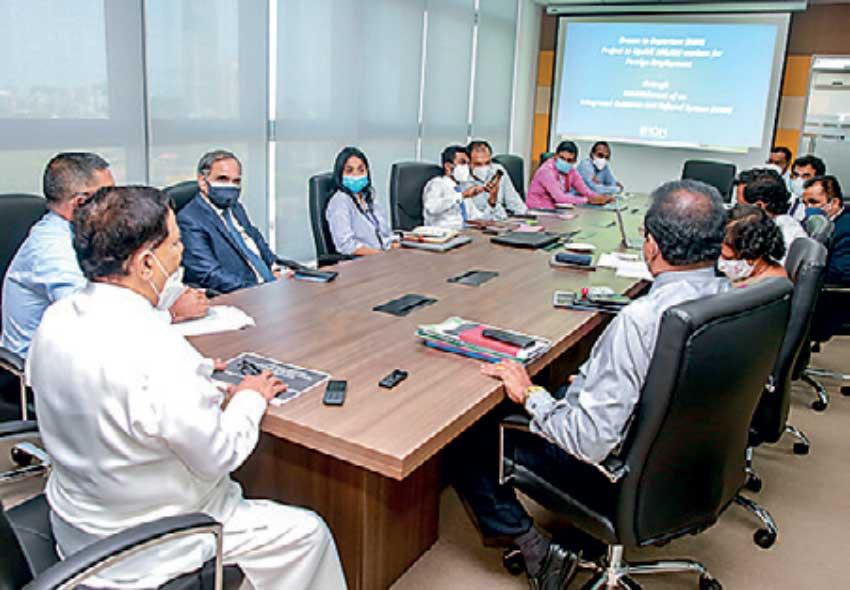29 Jun 2021 - {{hitsCtrl.values.hits}}

Sri Lanka remains an outlier among the Fitch-rated Asia Pacific (APAC) region frontier economies for weaker external sector buffers such as liquidity and reserves, while the others in the bloc strengthened their external sector positions with the exception of Laos.
In a note titled ‘External liquidity strains ease in some APAC frontier economies’, Fitch Ratings said that most frontier markets in Asia such as Bangladesh, the Maldives, Mongolia and Pakistan, improved their foreign exchange reserves during the first half of 2021, whereas Sri Lanka and Laos recorded declines.
Sri Lanka’s foreign exchange reserves depleted to US $ 4.0 billion in May, from US $ 5.7 billion in end-2020, stoking concerns of the ability of the country to meet foreign debt obligations and continuously finance imports.
Meanwhile, Fitch Ratings commenting on the coming allocation of the International Monetary Fund’s Special Drawing Rights said that Sri Lanka in particularly would benefit out of the six frontier markets.
“Most notably, it could bolster Sri Lanka’s reserves by US $ 780 million and by US $ 2.8 billion in Pakistan. We expect the IMF’s board of governors to approve the allocation in August,” the rating agency said.
Fitch cited Pakistan, which built external sector resilience during the pandemic, due to its engagement with the International Monetary Fund through an Extended Fund Facility. Further, Pakistan entered into an oil assistance package with Saudi Arabia, which is said to be worth up to US $ 1.5 billion, providing the country with additional buffers to ride the tough times compounded by the rising global oil prices. Pakistan also raised US $ 2.5 billion through a bond issuance in the international capital markets in March, along with the Maldives, which raised US $ 300 million in a Sukuk issuance in March and April this year. Mongolia also raised US $ 600 million in September last year.
Accessing international capital markets have become challenging for Sri Lanka since last year, due to its high yields in the secondary market and the junk rating by all three global ratings agencies.
Hence, Sri Lanka has since been pursuing non-market sources via bilateral and multilateral funds and swap lines to ride out the worst of the pandemic-induced pressures on its external sector.
Despite its impaired access to the international capital markets for bond rollovers, Sri Lanka’s economy has been regaining resilience since the beginning of this year, due to its robust merchandise exports and other services inflows with the exception of tourism, before the authorities struck the economy down through harsher restrictions, suddenly turning the country’s fortunes upside down.
19 Nov 2024 7 minute ago
19 Nov 2024 2 hours ago
18 Nov 2024 18 Nov 2024
18 Nov 2024 18 Nov 2024
18 Nov 2024 18 Nov 2024